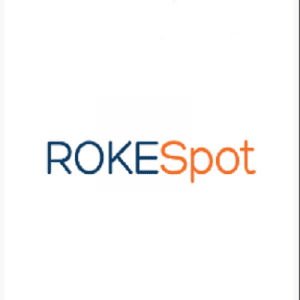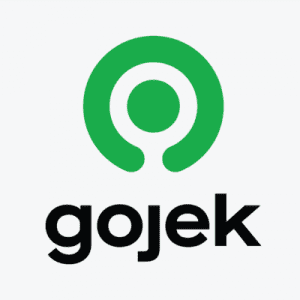
Agriculture
June 25, 2024
Pocket FM
Read SolutionImplemented by
Media in Cooperation and Transition (MiCT)

Updated on June 16, 2024
·Created on August 7, 2017
Free and open-source offline reader created to allow offline access to Wikipedia and other projects from the Wikimedia Foundation
Kiwix is a free and open-source offline reader created to allow offline access to Wikipedia and other projects from the Wikimedia Foundation as well as public domain texts from the Project Gutenberg, Wiktionary, TED talks and others. Available in more than 100 languages, Kiwix has been included in several high-profile projects, like encyclopedic access in Cuba and Google Impact Challenge’s recipient Bibliothèques Sans Frontières.
It is currently available for Windows, GNU/Linux, Android, iOS and macOS.
Target SDGs
SDG 9: Industry, Innovation and Infrastructure
Target Users (Target Impact Group)
Distributors / Implementing Organizations
Many known organizations use Kiwix as a component of their projects. Examples include: - The Afripedia Project set up kiwix servers in French-speaking universities (some of them with no Internet access) in 11 African countries. - Installed on the computers used for the One Laptop per Child project. - Installed on Raspberry Pis for use in schools with no electricity in Tanzania by the Tanzania Development Trust. - Installed on tablets in schools in Mali in the MALebooks project. - Deployed in Benin during teacher training seminars run by Zedaga, a Swiss NGO specialized in education. - A special version for the organization SOS Children's Villages was developed, initially for developing countries, but it is also used in the developed world.
Competitive Landscape
Direct competitors include RACHEL and Internet-in-a-box.
Regions
Worldwide
Manufacturing/Building Method
Kiwix is designed and programed by Emmanuel Engelhart and Renaud Gaudin
Intellectural Property Type
Open-source
User Provision Model
Code is available for download in their GitHub site. Users first download Kiwix, then download content for offline viewing with Kiwix.
Distributions to Date Status
More than one million downloads according to the Kiwix Annual Report 2016.
Type of service
Provides content and information for off-grid networks.
Telecommunication service required
Content available by downloading Kiwix software to any supported terminal.
Fixed network connection required (Y/N)
No.
Additional device required
Kiwix is a software solution. To be accessed it requires users to have a devices such as smartphone or personal computer or server in which it will be installed, a network through which server can be accessed and devices for end users to access content located in server.
Two way communication (Y/N)
Yes.
Battery life (hours)
N/A
Network capacity
N/A
Power requirements
Power requirements will depend on selected hardware applied to install solution.
Average packet loss
N/A
Application
Education.
Design Specifications
Kiwix is an offline reader for diverse web content, including Wikipedia, TED talks and many others. Kiwix is for computers without an Internet connection, computers with a slow or expensive connection, or to avoid censorship. This is done by installing all content locally in a file format ZIM, a high compressed open format with additional meta-data, which makes content smaller.
The ZIM files are opened with Kiwix, acting as a web browser. Kiwix offers full text search, tabbed navigation and the option to export articles to PDF and HTML. All of English-language Wikipedia, with pictures, fits on a USB stick (54 GB as of May 2016, or 16 GB with no pictures).
There is an HTTP server version called kiwix-serve; this allows a computer to host Kiwix content, and make it available to other computers on a local network.
Kiwix runs on a wide range of operating systems: Android, iOS, Microsoft Windows, macOS and GNU/Linux.
Technical Support
There is a FAQ section and a user guide section within their web page with technical support and other materials for anyone interested in the solution. There is also a public forum where users solve can solve doubts and contribute with other users.
Replacement Components
N/A
Lifecycle
N/A
Manufacturer Specified Performance Parameters
Kiwix aims to bring internet content to people without internet access in schools, universities, prisons, or at home.
Vetted Performance Status
None.
Safety
N/A
Complementary Technical Systems
This is a software solution. End users require proper hardware as smartphone, personal computer or server to install and use Kiwix.
Academic Research and References
Jimmy Lin. 2015. The Sum of All Human Knowledge in Your Pocket: Full-Text Searchable Wikipedia on a Raspberry Pi. In Proceedings of the 15th ACM/IEEE-CS Joint Conference on Digital Libraries (JCDL ’15). ACM, New York, NY, USA, 85-86. DOI: https://doi.org/10.1145/2756406.2756938
D. P. Scarpazza and G. W. Braudaway, “Workload characterization and optimization of high-performance text indexing on the Cell Broadband Engine™ (Cell/B.E.),” 2009 IEEE International Symposium on Workload Characterization (IISWC), Austin, TX, 2009, pp. 13-23.
doi: 10.1109/IISWC.2009.5306798
K. Cosh, “On Automatically Extracting Discoveries from User Generated Content,” 2014 Eighth International Conference on Complex, Intelligent and Software Intensive Systems, Birmingham, 2014, pp. 338-345.
doi: 10.1109/CISIS.2014.47
“Contemporary Art for Every Home.” n.d. Afripedia Art. Accessed June 16, 2024. https://afripedia.com/
“OLPC – More than a Laptop.” n.d. Laptop.Org. Accessed June 16, 2024. https://laptop.org/
Chapman, Janet. 2015. “Raspberry Pi in Masekelo: Bringing Wikipedia to a School without Electricity.” Diff. March 17, 2015. https://diff.wikimedia.org/2015/03/17/raspberry-pi-tanzania-school/
Gaudin, Renaud, Emmanuel Engelhart, and Julia Lipps. 2015. “Children in Mali Can Now Read Wikipedia Offline, Thanks to MALebooks e-Readers.” Diff. May 14, 2015. https://diff.wikimedia.org/2015/05/14/e-readers-in-mali/
Grigas, Victor, and Yoona Ha. 2014. “Sailing the South Pacific with a Copy of Wikipedia on Board: The Goodall Family.” Diff. November 15, 2014. https://diff.wikimedia.org/2014/11/14/sailing-south-pacific-with-wikipedia-on-board-goodall-family/
“Goal 9.” n.d. Sdgs.Un.Org. Accessed June 16, 2024. https://sdgs.un.org/goals/goal9
Sutherland, Joe. 2014. “Emmanuel Engelhart, Inventor of Kiwix: The Offline Wikipedia Browser.” Diff. September 13, 2014. https://diff.wikimedia.org/2014/09/12/emmanuel-engelhart-inventor-of-kiwix/
Gaudin, Renaud, Emmanuel Engelhart, and Julia Lipps. n.d. “Renaud Gaudin.” Diff. Accessed June 16, 2024. https://diff.wikimedia.org/author/rgaudin/
Kiwix-Xulrunner: [ARCHIVED] Legacy Kiwix Desktop Solution for Windows/MacOS/Linux. n.d. Accessed June 16, 2024. https://github.com/kiwix/kiwix-xulrunner
“Kiwix Applications – Access Knowledge Offline on Various Platforms.” 2023. Kiwix. June 22, 2023. https://kiwix.org/en/applications/
“File:Kiwix 2016 Annual Report.Pdf.” n.d. Wikimedia.Org. Accessed June 16, 2024. https://commons.wikimedia.org/wiki/File:Kiwix_2016_Annual_Report.pdf
“Kiwix FAQ – Answers to Common Questions about Offline Access.” 2023. Kiwix. July 25, 2023. https://kiwix.org/en/frequently-asked-questions/
“Kiwix / Discussion.” n.d. Sourceforge.Net. Accessed June 16, 2024. https://sourceforge.net/p/kiwix/discussion/
Compliance with regulations
Yes. All content available within Kiwix solution is open source and can be freely share everywhere.
Evaluation methods
For verification of proper hardware and software installation, an operation test on connectivity and data accessibility must be performed.
Other Information
Don Watkins wrote a review about Kiwix at opensource.com entitled The story behind Kiwix, an offline content provider.

Agriculture
June 25, 2024
Implemented by
Media in Cooperation and Transition (MiCT)

Agriculture
September 12, 2024
Implemented by
KSNM

Agriculture
June 22, 2024
Implemented by
KIBO

Agriculture
June 12, 2024
Implemented by
Parrot

Agriculture
June 20, 2024
Implemented by
Qlik Sense

Agriculture
June 19, 2024
Implemented by
Roke Telkom

Agriculture
June 11, 2024
Implemented by
Trringo

Agriculture
June 22, 2024
Implemented by
Gokada Inc

Agriculture
June 22, 2024
Implemented by
Suol Innovations Ltd. (inDrive)

Agriculture
June 22, 2024
Implemented by
Gojek Tech
Have thoughts on how we can improve?
Give Us Feedback